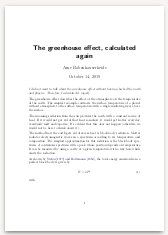The Three Fallacies of Markets
This is summarized from a German article I wrote in 2017: Unregulierte Marktwirtschaft ist unlogisch.
Markets can be useful to avoid the need for a global consensus about the value of actions. But the assumption that this is possible without regulation is built on illusions.
Therefore every market requires regulation.
three core fallacies of unregulated markets
There are three core fallacies of unregulated markets:
- conceptual: to serve as a measure of value in society, market theories have to work with assumptions that are obviously wrong.
- economical: unregulated markets create and increase inequality of people who perform equally well.
- political: once inequality becomes too high, democracy goes down.
Let’s start with the false assumptions.
conceptual problems of markets
A market can provide a criterion for societal value of actions, by claiming that the value of your action is worth as much as I’m willing to give you. However the assumptions needed for that are illusions:
- If people have unequal amounts of money to start with, they can give different amounts of value, but the value they give does not equal societal value. It is just personal preference, because averaging preserves the inequality. This is easy to understand if one person has everything: That person can decide to give value only to actions which lead the money directly back to them by simply starving anyone who doesn’t give the money back. This is a reason why every market system must have a way to break up monopolies.
- Someone who can create something with a fixed amount of money cannot automatically create more of it with more money. An artist who can use 30-100k$ to create a great music album cannot automatically create 100 great albums if he or she gets 100 times the amount of money.1
- Someone who receives money can spend it and thereby decide which actions have value in society. However the assumption that the ability to create something of value always goes hand in hand with the ability to judge the value of other actions is an illusion. Someone who creates great paintings does not automatically spend money on things the people who gave him or her money would see as valuable. As an example, just remember the number of artists who succumbed to cocain over the years.
There are ways to limit the effects of these problems, but all of these ways require regulating the market, and the market gives power to those who benefit from removing those regulations which are needed to make the market a tool for the good of society (or even add harmful regulations that increase the problems of markets to better serve the powerful). Therefore every time you choose to build a market into something, you are playing with fire.
Also the idea of the purely egoistic and perfectly informed homo economicus is wrong and advertisements can go away.
economic problems of markets
Markets increase inequality because larger factories can produce goods for less money per good (this also goes for other means of production). Therefore someone who can invest much to start with will gain more per product, which in turn increases his or her wealth. In short: the rich get richer.
Bankers call this the gravity of money. Rich people say “the first million is the hardest“.
political dangers of markets for democracy
I’ve already described why markets increase inequality. Now we get to the heart of the problem:
Democratic systems rely on the press to inform voting decisions.
If 10% of the people have 66% of the money, then the media is paid to the biggest part by those 10%. This corrupts media.
Corrupted media means that politicians get elected who change laws in favor of the richest 10%.
This increases the problems and destroys the regulation markets need to be a tool for the good of society.
how to move forward?
What I described looks bleak. What to do about that?
The core measure is: to judge a political decision, ask whether it increases or decreases inequality. If it increases inequality, it is a bad idea. Markets work best as a measure for value when money is distributed equally, and well working democracy is the system where people have the least power over others. These are precious qualities that need work to preserve.
Markets can solve problems, but they are dangerous. Whenever a society decides to solve a problem by introducing a market, it must stay vigilant — its people must stay vigilant — to prevent corruption that turns the market into a bigger threat than the problem it was meant to solve.
Footnotes:
As an example, doctors without borders sometimes give back donations because they cannot actually use all of them (from an interview with Ulrike von Pilar, one of the founders of doctors without borders).
